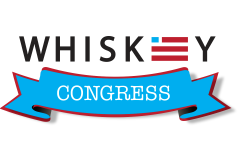
Supreme Court Opens Up Sports Betting Across The Country
In an interesting shift in state and federal law the U.S. Supreme Court struck down a federal law that required states to ban gambling on sporting events. This decision allows for states other than Nevada, Delaware, Oregon, and Montana to now determine if they will allow sports betting in their states. To clarify, the Supreme Court did not make a decision on sports gambling specifically other than the law that forced states to outlaw sports betting did not pass constitutional muster.
PAPSA or Professional and Amateur Sports Protection Act prevented states from passing legislation that made sports betting legal. Many who opposed the law felt that this was in direct contrast to state sovereignty as it forced states to carry out the will of Congress with no federal support. A more technical way to explain it is that this directly violates the 10th amendment of the U.S. Constitution.
I’ll explain the 10th Amendment argument further. The 10th Amendment arises out of the anti-commandeering legal doctrine that at it’s base level is a protection of states and the individual from congressional overreach. Put another way, if it is a power that is not expressly provided to the federal government then that power belongs to the state. How that relates to PAPSA text is directly related to what PAPSA doesn’t do. PAPSA does not regulate sports gambling, it does not set out rules for sports betting, it does not bring any clarity to the idea of sports betting. The other thing it does not do is ban sports betting across the board. PAPSA law exists in a twilight zone nether world of telling the states that they can’t do something even if they and their citizens want to do it. What PAPSA text does tell the states that have laws against sports betting is that they can’t change those laws.
The other issue hurting those in support of PAPSA (the NCAA, NFL, NBA and all your major sports leagues that don’t want to see gambling spread outside of Nevada and places where it’s already sanctioned) is the Supremacy Clause of the U.S. Constitution. U.S. Constitution (Article VI, Clause 2) “the Constitution, federal laws made pursuant to it, and treaties made under its authority, constitute the supreme law of the land…” I’ll explain further. While states are indeed sovereign, the Federal government still reigns supreme when it comes to the law of the land. Thus when there is talk of states legalizing marijuana the reality is that is still illegal federally therefore technically it is still illegal even in those states where it has been “legalized”. But it’s not just who makes the laws, it’s who enforces the laws that are key to this aspect of the constitution. The court states in New York v. United States, 505 U.S. 144, 188 (1992) “When Congress encourages states to adopt and administer a federally prescribed program, both governments maintain their accountability for their decisions. When Congress compels the states to act, state officials will bear the brunt of accountability that properly belongs at the national level”. Put another way, if Congress wants to enforce a federal law, the federal government has to take responsibility for enforcing that federal law.
Using our examples of marijuana law vs. sports betting it becomes clear the differences between the two. The FBI and DEA regularly monitor and enforce the will of the federal government in regards to drugs and specifically marijuana as they arrest and prosecute those found in possession of, distributing, selling, manufacturing, transporting etc… Those found guilty are tried and put in federal institutions to serve their sentences, thus the federal government not only says weed is illegal, but they take the necessary steps to enforce that thought process (whether we agree with it or not).
With PAPSA and sports betting that was not the approach. There is no federal bureau of sports betting, the FBI does not conduct raids on illegal sports gambling (unless it’s tied to a larger organized crime situation and it can be looped into a RICO charge), and there is no enforcement from the Federal government on sports betting, only a law that tells the states that they can’t legalize it.
Today’s SCOTUS decision is a game changer. From New Jersey to Pennsylvania to West Virginia the flow of money is about to change. Because sports betting is illegal in so many places it’s hard to quantify the amount of U.S. dollars flow to illegal sports books, but that number has been estimated in the billions. New Jersey has already started making preparations for this decision and while they will push to be ready for the 2018 football season, they will most likely come on line for the 2018-19 basketball season or wait until the 2019 collegiate and NFL football seasons. That being said, some states may take the moral high ground and keep gambling illegal because of addiction issues and other concerns involved with betting, but there will be many that will decide to jump on the bandwagon and work into their current gambling set up.
The other big money question is how does this impact Las Vegas and the amount of betting going on there? How much money will Las Vegas lose because people will be able to place sports bets at home legally? No one will really know until it’s in place but even if it’s a few percentage points, considering over $4 billion dollars were wagered on sports in 2017 we’re talking about millions of dollars going to other states instead of Las Vegas which undoubtedly sports books across Vegas are not happy about.
WASHINGTON — The U.S. Supreme Court acted Monday to bust Nevada’s monopoly on legal sports betting, allowing more states to get in on the action and reap the tax benefits.
The court struck down a federal law that required states to ban gambling on the outcome of sporting events. The Professional and Amateur Sports Protection Act was highly unusual: it did not ban sports gambling nationwide as a matter of federal law, but it said the states were not allowed to permit it.
Nevada was grandfathered in when the law was passed in 1992.
New Jersey and then-Gov. Chris Christie challenged the law, arguing that it violated the Tenth Amendment, which the Supreme Court has said prohibits federal laws that compel states to carry out federal dictates. The gambling law, Christie said, commandeered the states by forcing them to prohibit sports wagering.
Writing for the majority, Justice Samuel Alito said the problem with the federal law is that “state legislatures are put under the direct control of Congress.”
“A more direct affront to state sovereignty is not easy to imagine,” he wrote.
New Jersey wants to allow limited forms of sports gambling and to collect the taxes from it. While supporters of the law said it discouraged betting and the resulting corrupting influence of organized crime on athletics, Christie said Americans already spend nearly $150 billion a year on illegal sports wagering.
The American Gaming Association estimated that Americans would wager $10 billion on this year’s NCAA men’s basketball tournament alone, with just three percent of the bets placed legally through Nevada. “Our current sports betting laws are so out of touch with reality that we’re turning tens of millions of Americans into criminals for the simple act of enjoying college basketball,” said Geoff Freeman, the gaming association’s CEO.
Steve
Steve is an affordable multifamily housing professional that is also the co-founder of Whiskey Congress. Steve has written for national publications such as The National Marijuana News and other outlets as a guest blogger on topics covering sports, politics, and cannabis. Steve loves whiskey, cigars, and uses powerlifting as an outlet to deal with the fact that no one listens to his brilliant ideas.



